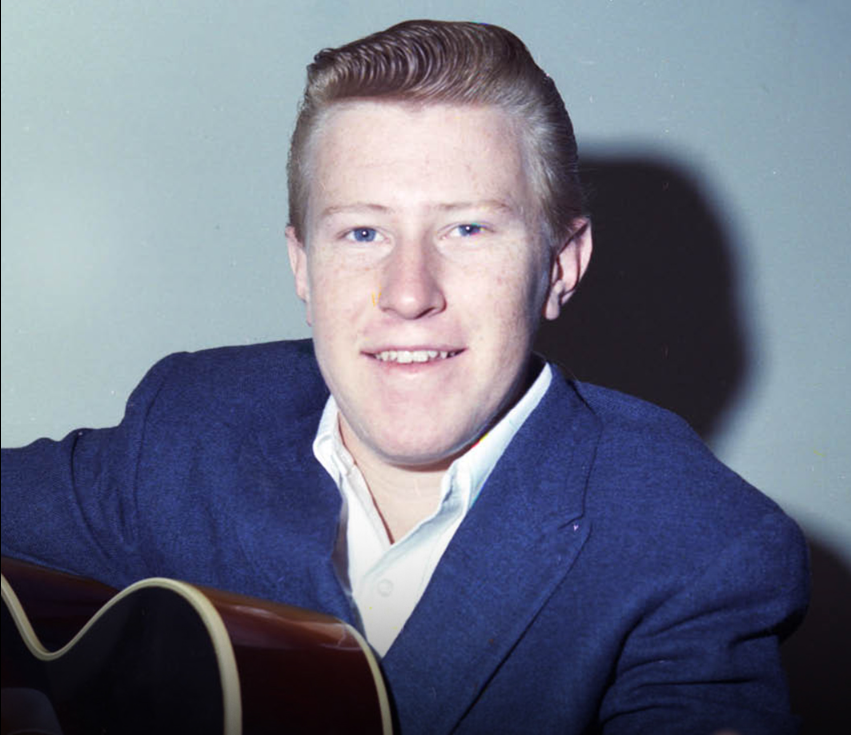The country music world is grieving the loss of John Wesley Ryles, a voice known for its tenderness and truth. With a soulful delivery and a tone that resonated warmth, Ryles passed away peacefully on November 2, 2025, at the age of 74. While his name may not have been synonymous with stadium tours or modern streaming hits, his influence on country music is undeniable—shaping the sound of future generations of singers who built their style upon his steady, understated foundation.
In a time when artists like Luke Combs, Lainey Wilson, Morgan Wallen, and Chris Stapleton dominate the airwaves, Ryles represented a different era—one rooted in storytelling, restraint, and an honesty that didn’t need to be amplified. He was a bridge between the traditional ballads of the past and the sleek productions of the present. His songs never demanded attention; they simply remained, carrying an emotional weight that stayed long after the music had ended.
Born on December 2, 1950, in Bastrop, Louisiana, Ryles grew up in a home without modern conveniences—no electricity, no radio, no television. For his family, music wasn’t a background activity; it was the heartbeat of their existence. “The only entertainment we had was singing,” he once recalled. On warm summer nights, they would gather outside and harmonize into the twilight, those moments forming the foundation of his early music career.
At 13, Ryles was already performing in local Texas clubs, and by 15, he convinced his father to move with him to Nashville to pursue his dream. By the age of 17, Ryles had already achieved what many only dream of: a hit single.
That song, “Kay,” released in 1968, was a soft ballad that eventually became timeless. It told the story of love, loss, and quiet heartbreak, and Ryles captured the emotion with a voice that trembled just enough to sound human, yet remained strong enough to leave an everlasting impression. The song rose into the Top 10 of the Billboard Country Chart, securing Ryles’ place in the shifting landscape of the country music scene in the late ’60s.
But fame is fleeting, and by the early 1970s, Ryles stepped away from the industry, working odd jobs in Missouri to make ends meet. For a while, it seemed as though his story was another cautionary tale of a promising talent lost to the pressures of the business.
But he came back.
In the mid-1970s, Ryles returned to Nashville, marking the beginning of a second phase of his career. He released a series of heartfelt songs—”Fool,” “Once in a Lifetime Thing,” “Louisiana Rain,” and “Liberated Woman”—that reflected both heartbreak and hope in equal measure. He also lent his voice to new renditions of songs like “Always on My Mind,” bringing a quiet, introspective ache to tracks that had previously been larger-than-life hits.
Though his name may have faded from mainstream radio, his voice remained a constant presence. As one of Nashville’s most respected harmony singers, Ryles’s background vocals could be heard on countless records, adding depth and warmth to the music of artists like Mark Wills, Kenny Chesney, and others. His harmonies were so flawless that fans often mistook them for the lead artist’s own voice.
Mark Wills was one of the first to pay tribute, saying:
“We lost a giant. John Wesley Ryles sang harmonies on more records than I can count, and you’d never even know it was him. He could blend with anyone, and his voice was impeccable.”
John White, a fellow artist, shared a similar sentiment:
“When I first moved to Nashville, I would see John in the halls between sessions. His humility and skill were unmatched. He didn’t chase fame—he chased perfection. And he found it every time.”
Ryles’s legacy was never about fame. He was a craftsman, driven by a love for music and the simple joy of perfecting sound. His commitment to his craft made him indispensable to those who wanted their songs to feel real.
Away from the stage, Ryles’s life was marked by love and respect. He was married to Joni Lee, daughter of country legend Conway Twitty. Their partnership was a quiet, steady bond—two people who understood the life and struggles of the music industry. Friends describe their relationship as one of balance and mutual admiration—her energy complementing his calm presence.
Those who knew him personally recall his warmth and kindness. He was never one for grand speeches; his presence spoke for itself. People felt grounded just by being near him.
As news of his passing spread, tributes poured in from across the music community. Younger artists, many of whom had grown up unknowingly listening to his harmonies, expressed their gratitude. One producer summed it up succinctly: “He was the sound behind the sound. We all learned from him, even if we didn’t realize it at the time.”
Ryles’s legacy is not measured by awards or chart-toppers. It’s felt in the quiet echoes of his music—the way his songs still resonate with emotion, still carry a breath of truth, still whisper honesty without ever raising their voice. His gift was subtle but lasting: the ability to remind listeners that power in music doesn’t require volume.
He leaves behind a career that spanned six decades and quietly shaped the emotional landscape of modern country music. From his earliest performances beneath porch lights to his harmonies on hit records, Ryles carried the spirit of a simpler time—a belief that music is meant to be shared, not owned.
John Wesley Ryles’s story is timeless. His voice will continue to echo in the hearts of country fans for generations to come.
May he rest in peace. His voice will always remain with us.
